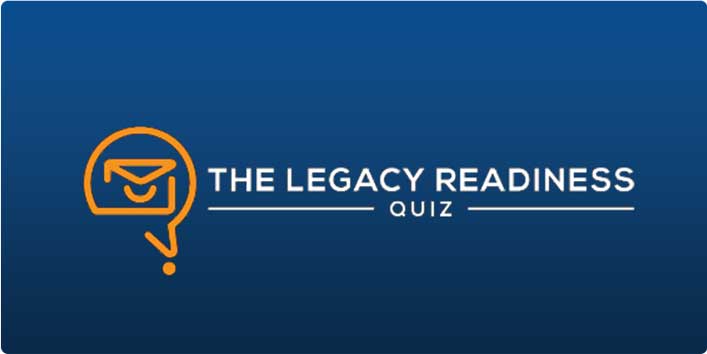- Home
- Estate Planning goals and objectives
- Elder Law Estate Planning
How Elder Law Estate Planning Secures Your Future and Legacy
Elder law estate planning is a crucial step for individuals in their later years to protect your assets, plan for long-term care, and ensure a smooth transition of your legacy.
Not leaving your family left disorganized and in chaos.
The benefits of elder law estate planning:
Besides protecting your assets, it makes it easier on the family when it relates to healthcare decisions. With healthcare directives and appointed trusted individuals to make medical decisions on your behalf when you can't anymore let's everyone know what your wishes are.
There are over 127 million Canadian and Americans who do not have a will, just by creating a will or living trust, you can make sure your assets are distributed according to your wishes, minimizing the chances of family disputes.
Effective estate planning helps minimize taxes and preserves your wealth for future generations.
Common Misconceptions:
"Estate planning is only for the wealthy": Estate planning is relevant for individuals of all financial backgrounds. It ensures your assets are distributed as you want and minimizes the burden on loved ones.
"I'm too young for estate planning": It's never too early to start planning. Unexpected events can occur at any age, making it essential to have a plan in place. Intensive care is no place to find out there is no will.
And you can never have a meaningful conversation with someone when they are on a ventilator.

Emily's Journey to Financial Security Through Elder Law Estate Planning
Emily, is a vibrant and independent woman in her early 70s, had always taken pride in her financial independence.
However, as she enters her later years, Emily realized the importance of planning for the future and ensuring her financial security.
She decided to protect her assets and secure her legacy.
Emily understood that it was never too early to start planning, so she wasted no time and sought the guidance of an experienced elder law attorney.
Together, they assessed her current financial situation and discussed her goals for the future.
Emily gathered all her financial documents, including bank statements, investment portfolios, and property records.
With the help of her attorney, she analyzed her assets and debts, gaining a clear understanding of her net worth and financial obligations.
With her attorney's expertise, Emily decided to create a living trust. She carefully outlined her wishes for how and who to distribute her assets, designating her children as beneficiaries.
By creating a living trust, Emily ensured her estate would bypass probate, saving time and reducing administrative costs.
She also had conversations with her family letting them understand what her wishes are and discussed them openly. Everyone knew what she wanted.
Emily appointed her eldest daughter as her power of attorney, granting her the authority to make financial and legal decisions on her behalf if she became incapacitated.
She also established comprehensive healthcare directives, specifying her medical preferences and designating a trusted individual to make healthcare decisions when necessary.
Recognizing the potential need for long-term care in the future, Emily and her attorney explored various options.
They discussed the benefits of long-term care insurance and devised a strategy to set aside funds for potential assisted living or nursing home care expenses.
Emily's financial advisor worked with her attorney to devise tax-efficient strategies. They explored opportunities for gifting assets to family members, taking advantage of tax exemptions, and establishing charitable trusts to minimize estate taxes and maximize the value of her estate for her beneficiaries.
Understanding the importance of keeping her plans current, Emily committed to regular reviews and updates with her attorney.
She know life circumstances and laws change over time, and she wanted to ensure her estate plan reflected her evolving needs and desires.
Emily's journey through elder law estate planning not only provided her with financial security but also offered her peace of mind.
Emily's proactive approach to planning served as an inspiration to others, encouraging them to take control of their financial futures through elder law estate planning.

Key Questions to ask Yourself for Effective Elder Law Estate Planning
When Should I Start? :
The earlier you start, the more options you have. Don't wait until a crisis occurs; begin the planning process as soon as possible.
What are My Assets and Debts?:
Take stock of your assets, including properties, investments, bank accounts, and personal belongings. Evaluate any outstanding debts to get a clear picture of your financial situation.
This is also good to know to help your lawyer when you first meet.
This also includes your digital assets, which means have a list of all your logins and passwords. Write them down and let your executor or trustee where the list is kept.
Should I write a Will or Living Trust?:
Consult with an elder law attorney first to decide if to draft a will or living trust that outlines how you want your assets to be distributed after your passing.
Be sure to name an executor or trustee who will carry out your wishes. Have conversations with them to make the job easier on them to carry out.
Do I Have Power of Attorney and Healthcare Directives in Place?:
Designate a trusted individual to act as your power of attorney for financial and legal matters.
Additionally, establish healthcare directives, such as a healthcare proxy or living will, to ensure that your medical preferences are respected if you become unable to make decisions.
What is My Long-Term Care Plan?:
Consider the potential need for long-term care in the future. Explore options such as long-term care insurance, setting aside funds for assisted living or nursing home care, or exploring alternative care arrangements.
How Can I Minimizing Taxes?:
Work with a financial advisor and an attorney to explore what strategies for minimizing taxes and maximizing the value of your estate for your beneficiaries.
This may involve gifting some assets, establishing trusts, or other tax-efficient strategies.
Regularly Review and Update Plans:
Nothing in life stays the same and laws change over time, so it's essential to review and update your estate plan regularly.
Changes such as marriage, divorce, birth of children or grandchildren, or changes in financial situations should prompt a review of your plan.
Elder law estate planning is a crucial step for seniors to protect their assets, secure their healthcare preferences, and leave a lasting legacy.
This is a chance to leave a legacy, not a legacy and a mess.
- Home
- Estate Planning goals and objectives
- Elder Law Estate Planning






